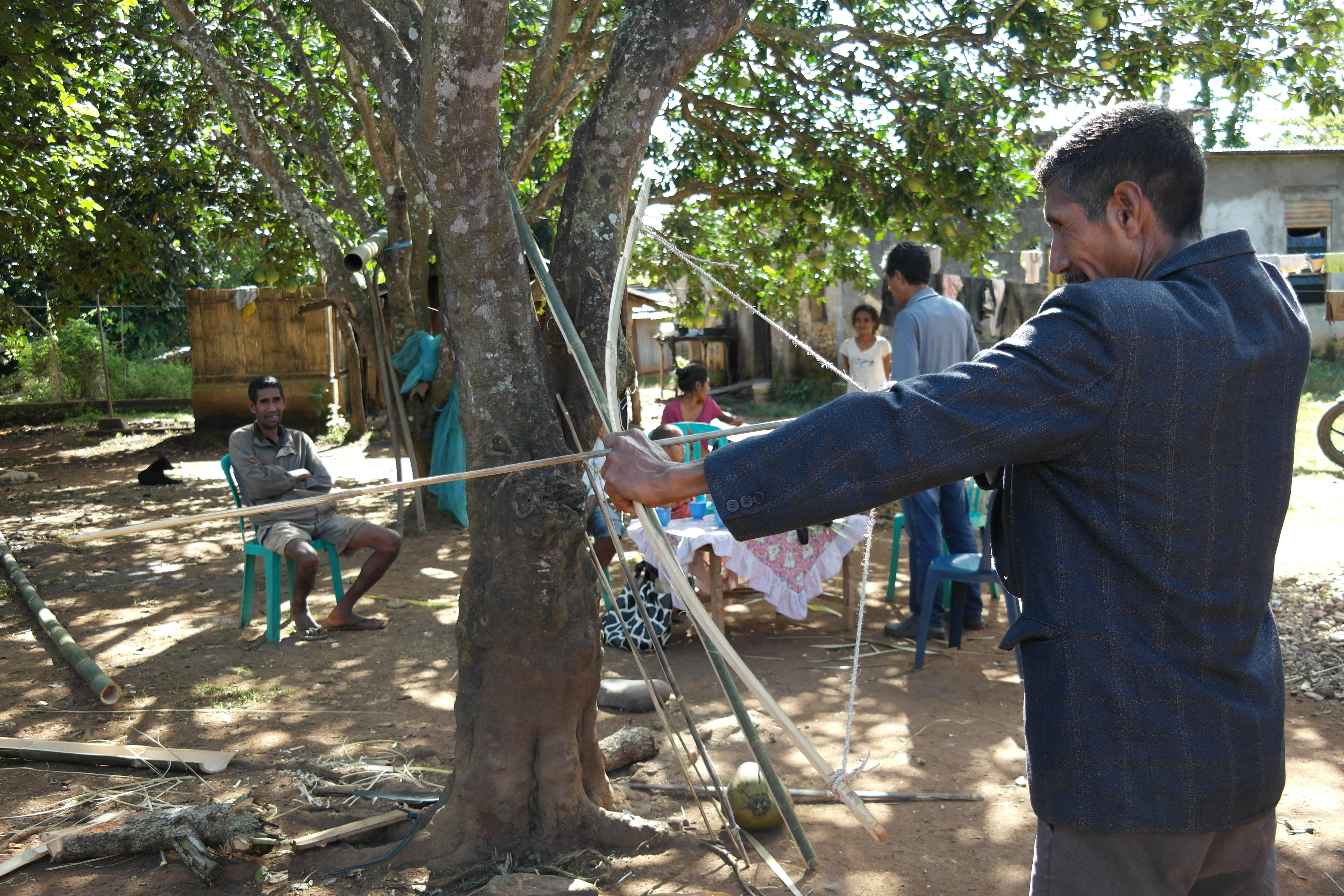Elements of cultural expression: tools
The Fataluku people maintain a strong connection to their rugged forested mountain and coastal landscapes. These landscapes provide important ecological and biodiversity functions that are used by the Fataluku people to hunt and fish to meet livelihood needs.
A number of traditional tools traditionally used by the Fataluku people were identified in this research project. Tools used by the Fataluku people include weapons including spears, blow pipes and bow and arrows and traps. To learn more about each element, selecting the element photo will take you to its individual page, where you will find photographs and videos describing how it is made and used.
Pai ho vaka hiil, snare traps for catching wild deer and pigs.
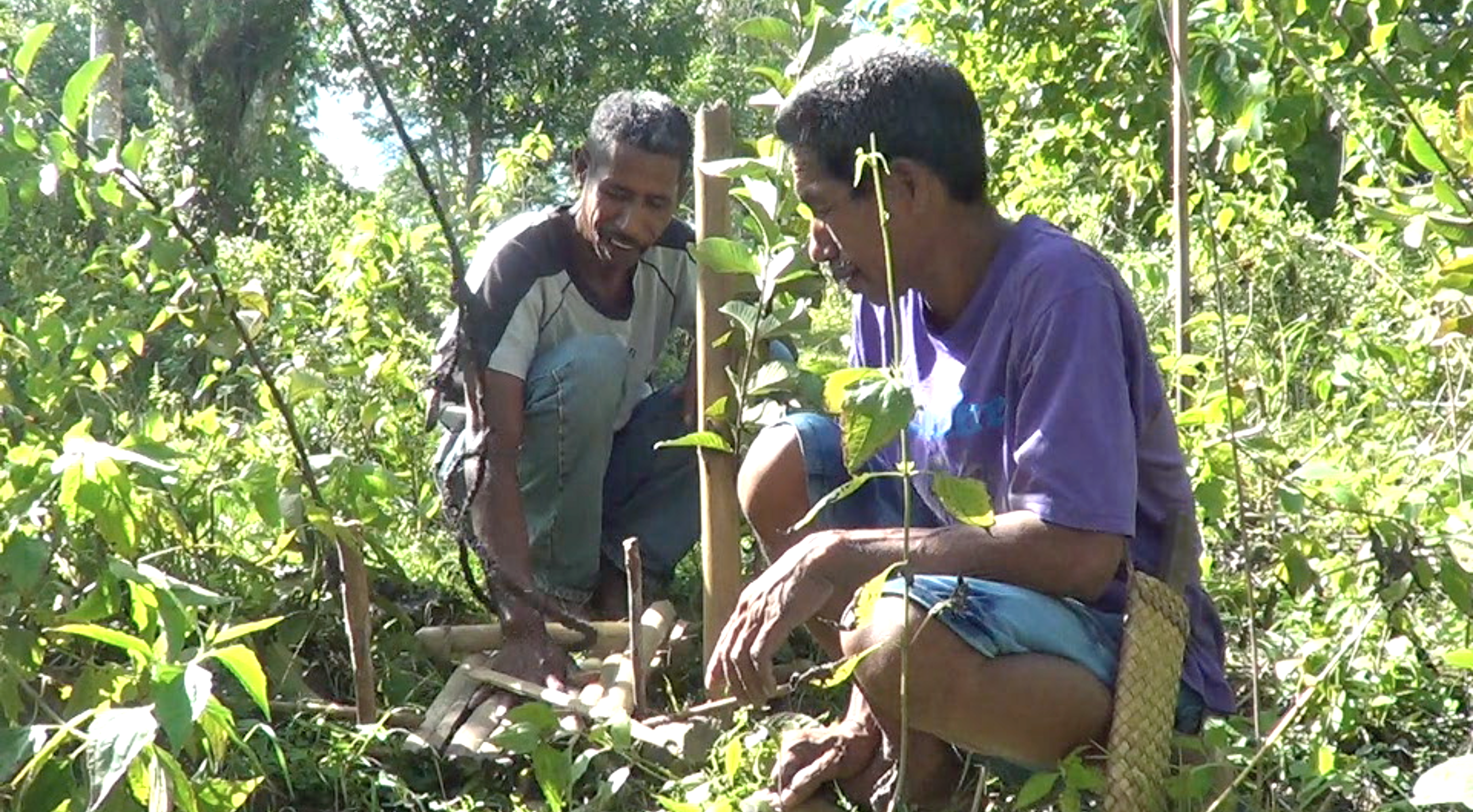
Cua hiiI fa’i, made of bamboo, trap mice that threaten newly harvested rice and corn.
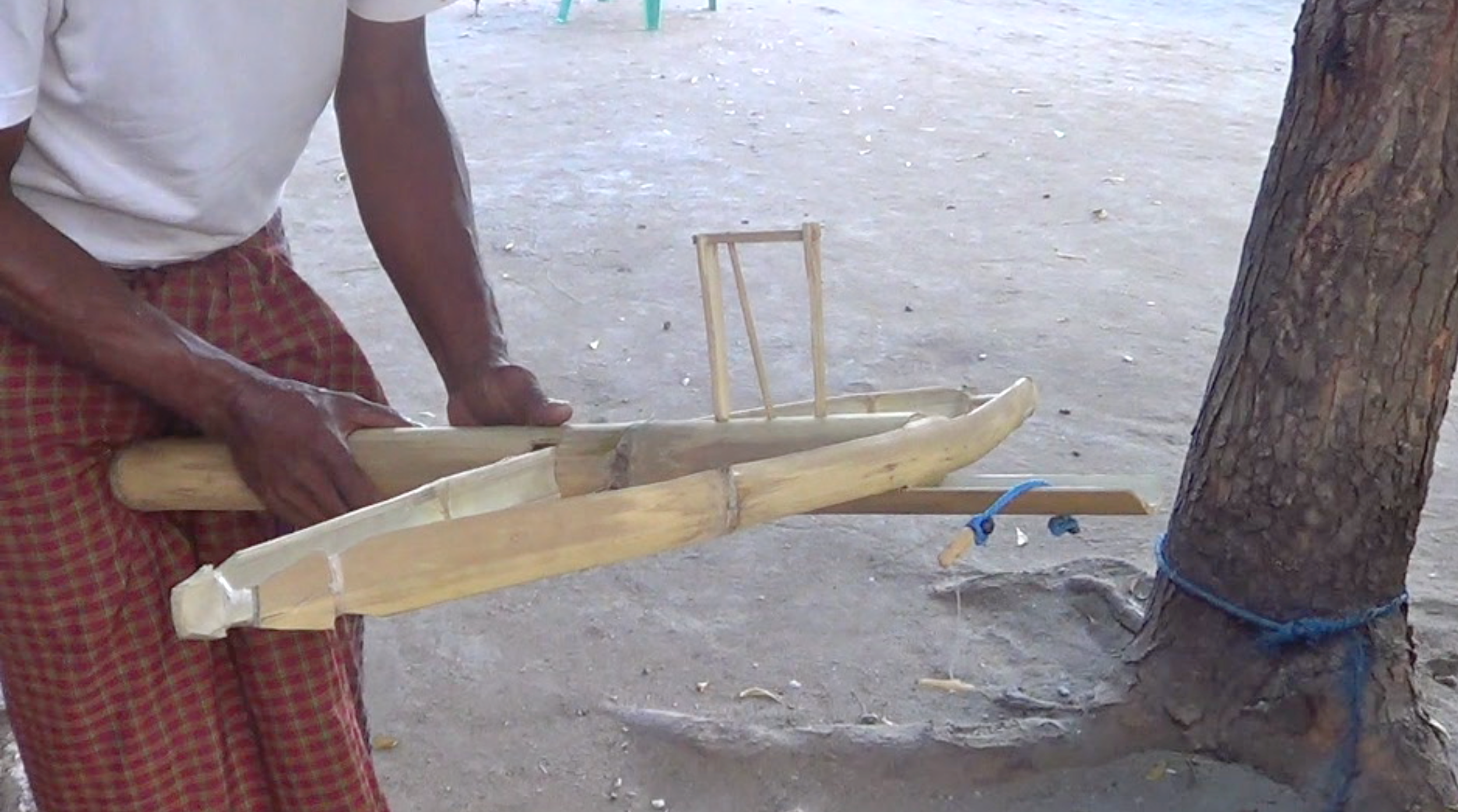
Roso hina, basket-like traps woven from palm leaves, catch fish at sea.
.jpg)
Coro, bamboo spears, are used primarily as projectile weapons for hunting larger animals such as deer, pig and buffalo.
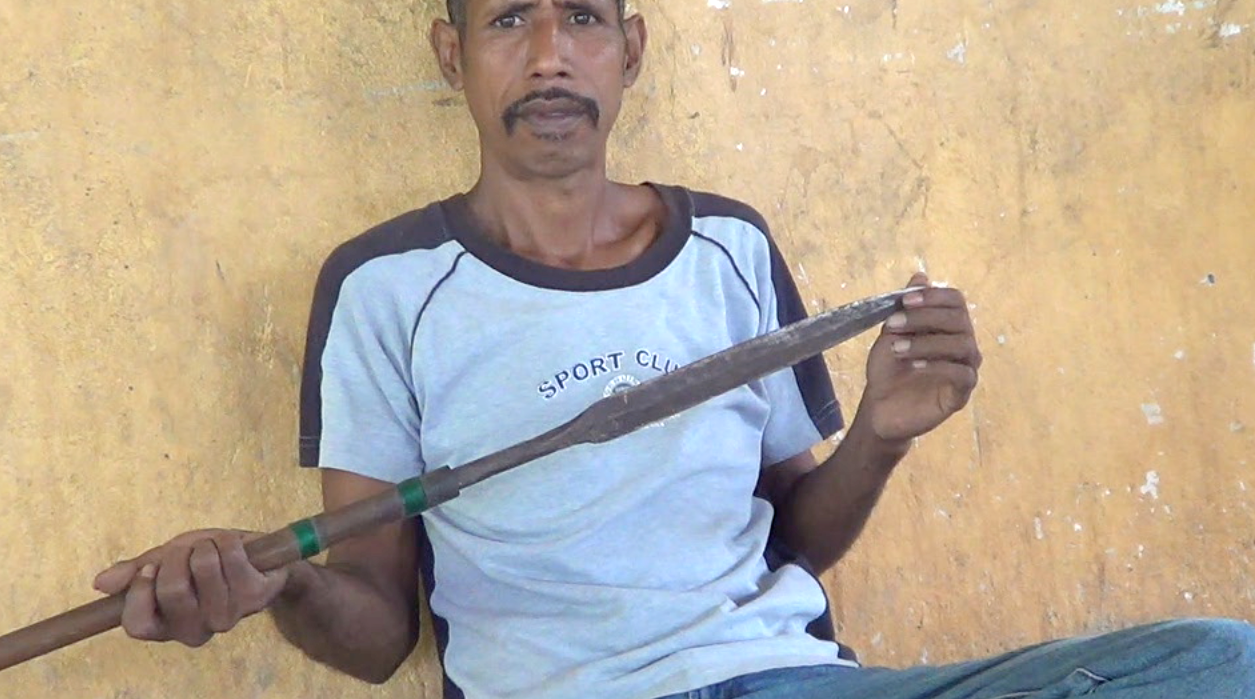
Fei-fa’i, bow and arrow, are used for hunting wild animals and spearing fish.
Tutufa, blow pipe, made from varying lengths of slim bamboo, are used to hunt birds, cuscus, civets, small pigs and bats.
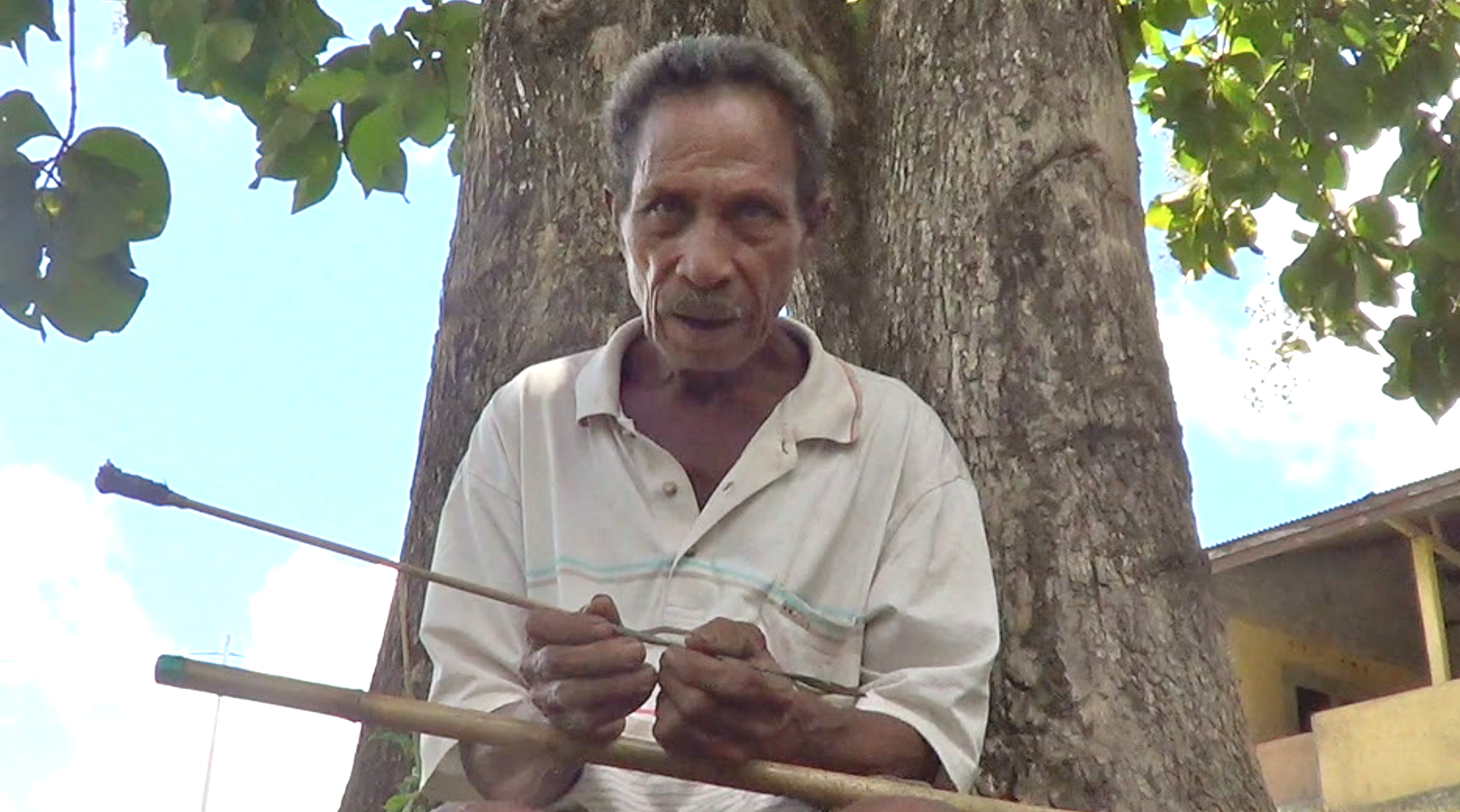
Masyarakat Fataluku mempertahankan hubungan yang kuat dengan gunung berhutan dan lanskap pesisir mereka. Lanskap-lanskap ini memberi fungsi ekologis dan keanekaragaman penting yang digunakan oleh masyarakat Fataluku untuk berburu dan menangkap ikan sebagai mata pencaharian.
Sejumlah alat tradisional yang digunakan oleh masyarakat Fataluku telah teridentifikasi dalam proyek penelitian ini. Alat-alat yang digunakan oleh masyarakat Fataluku meliputi senjata, termasuk tombak, pipa tiup, busur dan anak panah, serta perangkap. Untuk mempelajari lebih lanjut mengenai masing-masing elemen, memilih foto elemen akan membawa anda ke laman individu, anda akan menemukan foto-foto dan video yang menggambarkan bagaimana alat-alat tersebut dibuat dan dimainkan.
Can't find what you're looking for? Try viewing the site map.
